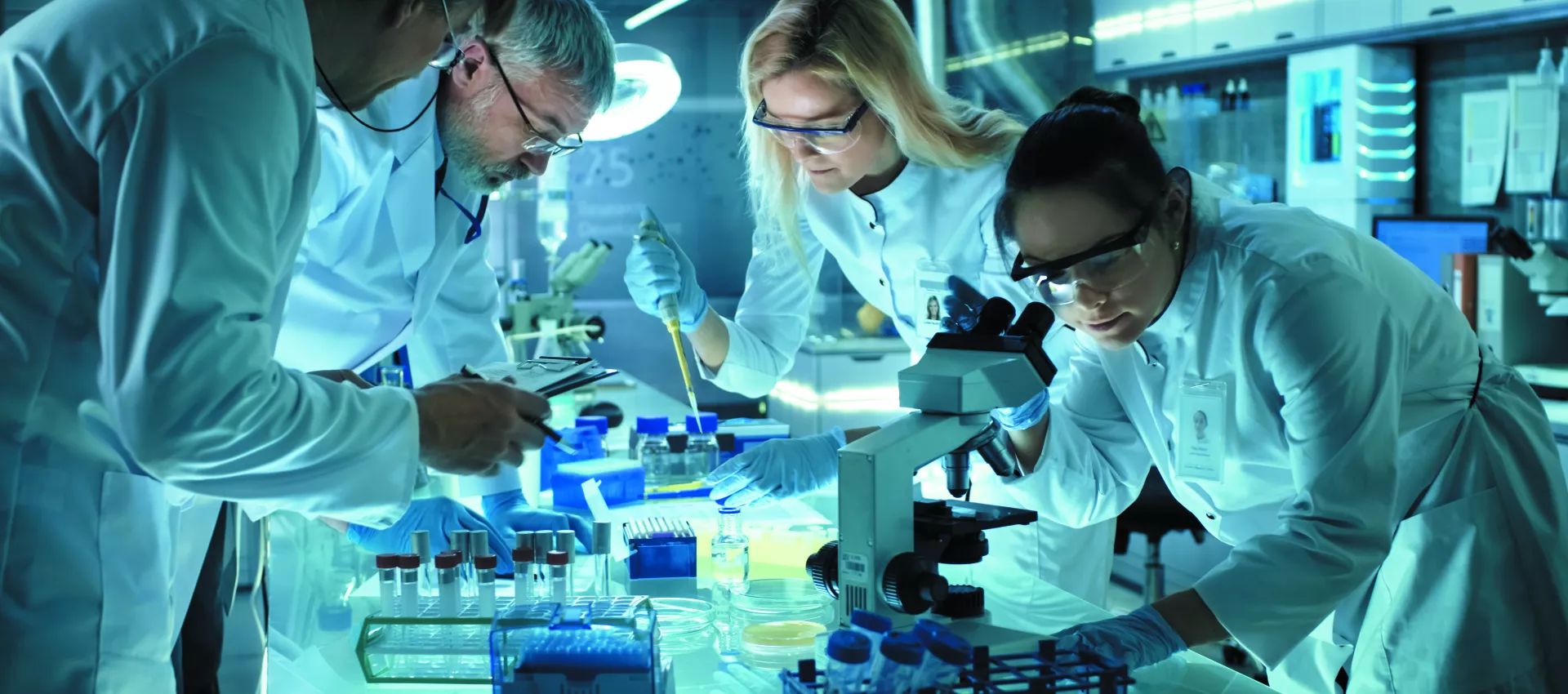They are involved with us

Director of Research & Valorization, Antwerp University Hospital, Belgium

Director of Research & Valorization, Antwerp University Hospital, Belgium
Patrick De Boever is a professor at the Centre of Environmental Sciences of Hasselt University since the year 2010. From 2007 until 2020, Patrick De Boever worked as a project manager and team leader at VITO, Flanders’ research and technology organization on cleantech and sustainable development.
He was team leader of the MONA group focusing on retinal image analysis, with a particular interest in machine learning and artificial intelligence for screening and diagnosis in medical applications. He began his research career at the Belgian Nuclear Research Centre, working on life science research projects commissioned by the European Space Agency from 2001 until 2007. Patrick De Boever focused on microbial contamination and microbial biosafety in harsh environments.
He holds a Ph.D. in Applied Biological Sciences from Ghent University and a Master of Science in Bio-Engineering from that same university. During this period, he investigated the human gut microbiome and its modulation by probiotic lactic acid bacteria.

AMR Patient Survivor and One Health Advocate

AMR Patient Survivor and One Health Advocate
Vanessa is Chair of the WHO Taskforce of AMR Survivors. She became an AMR patient advocate in 2013 after surviving a serious car accident and 10-year facial reconstruction that caused a highly-resistant MRSA infection which she fought for 3 years.
She is a patient advisor to several organisations including the WHO Strategic Technical Advisory Group on AMR (STAG-AMR), the Advisory Committee on Antimicrobial Prescribing, Resistance and Healthcare Associated Infection, UK (APRHAI) as well as a civil society champion at the Africa CDC. She has won awards for her advocacy including a Woman of Stature (WOS) Woman of the Year Award, FINDdx Voices for Diagnostics Award, and Antibiotic Guardian Award in the Community Communications category organized by the UK Health Security Agency (UKHSA).
Vanessa is also the founder and executive director of a UK registered charity called The AMR Narrative which focused on patient and public awareness raising and advocacy capacity development for AMR.

Doctor of Medicine, Department of the Infectious Diseases, Pitié Salpétrière Hospital

Doctor of Medicine, Department of the Infectious Diseases, Pitié Salpétrière Hospital
Robert Sebbag is a doctor of medicine who has been attached to the infectious diseases department at the Pitié Salpetriere hospital since 1980.
He has practiced medicine, particularly in Latin America (Bolivia) and Vietnam, for several years.
He was also director of international operations for the French Red Cross for three years.
He is the founder of the NGO Action Contre la Faim (ACF), of which he is still a director.

President of the committee, Professor of Gastroenterology, St Antoine Hospital, APHP, Sorbonne University, Paris, France

President of the committee, Professor of Gastroenterology, St Antoine Hospital, APHP, Sorbonne University, Paris, France
Harry Sokol, is Professor in the Gastroenterology department of the Saint Antoine Hospital (APHP, Paris, France), the co-director of the Microbiota, Gut & Inflammation team (INSERM CRSA UMRS 938, Sorbonne Université, Paris), group leader in Micalis institute (INRAE) and coordinator of the “Paris Center for Microbiome Medicine” (www.fhu-pacemm.fr/).
Harry Sokol is an internationally recognized expert in Inflammatory Bowel Disease (IBD) and in gut microbiota fields. He published over 300 papers on these topics in major journals (including Gut, Gastroenterology, Cell Metabolism, Cell Host & Microbe, Nature communication, Nature Medicine). His work on the role of the gut microbiota in IBD pathogenesis led to landmark papers describing the IBD-associated dysbiosis (imbalance in gut microbiota composition) and the role of the pivotal commensal bacteria Faecalibacterium prausnitzii in gut homeostasis and in IBD. Currently, his work focuses on deciphering the gut microbiota-host interactions in health and diseases (particularly IBD), in order to better understand their role in pathogenesis and develop innovative treatments. Harry Sokol is exploring particularly the role of the microbiota in tryptophan and energy metabolism for which he is recipient of two ERC grants. Beside basic science, he is also involved in translational research.
He is the current president of the French group of Fecal Microbiota Transplantation (www.gftf.fr) and the head of the APHP Fecal Microbiota Transplantation Center, he coordinated a pilot randomized control trial evaluating Fecal Microbiota Transplantation in Crohn’s disease and he is currently coordinating 2 phase III nationwide randomized control trial evaluating this approach in ulcerative colitis and Crohn’s disease. Harry Sokol is currently Associate Editor for Gastroenterology. Harry Sokol co-founded Exeliom biosciences (https://www.exeliombio.com/).
Twitter/X: @h_sokol

Research Director at INRAE & Scientific Director of Metagenopolis, Jouy en Josas, France

Research Director at INRAE & Scientific Director of Metagenopolis, Jouy en Josas, France
Joël Doré joined INRA in 1983 and received his Ph.D. from the University of Illinois Urbana-Champaign in the U.S. in 1988. Trained in microbial exology, he developed intestinal metagenomics for diagnostic applications and tools used to study interactions between food, microbiota, and their hosts.
With more than 250 publications (and an h-index of 72), Doré received LABIP’s International Science Award for Outstanding Excellence in Lactic Acid Bacteria Research with Industrial Relevance in 2008. In 2014, he won the Simone and Cino del Duca Foundation’s Grand Prize in Science (along with S.D. Ehrlich) for his scientific contribution to the topic “Microbiome and Homeostasis”. In 2016, he received the Dupont Nutrition & Health Science Medal for Excellence in Microbial Research. Doré’s mission is to contribute to a better understanding of the symbiosis between humans and microbes to improve prevention and treatment.
He is cofounder and scientific advisor of MaaT Pharma, Novobiome and GMT, and science coordinator of the digital platform https://www.gutmicrobiotaforhealth.com.
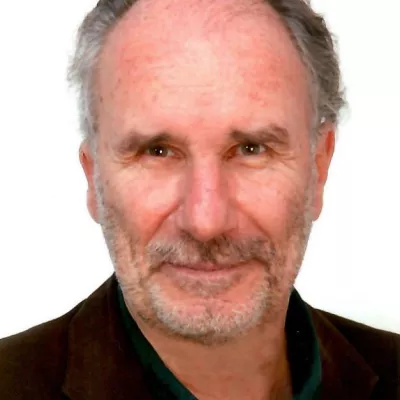
Consultant in Gastroenterology, Teknon Medical Centre, Barcelona, Spain

Consultant in Gastroenterology, Teknon Medical Centre, Barcelona, Spain
Professor Francisco Guarner graduated in Medicine at the University of Barcelona and trained in Internal Medicine, Gastroenterology and Hepatology, at the Hospital Clinic; Ph.D. degree in Medicine at the University of Navarra. Visiting Scientist and Research Fellow at the Upjohn Company in Kalamazoo (Michigan, USA, 1983), the Royal Free Hospital (London, UK, 1984), the King’s College Hospital (London, UK, 1984-1986), and the Wellcome Research Laboratories (Beckenham, UK, 1986). Professor Francisco Guarner was previously a researcher at the Digestive System Research Unit of the Vall d'Hebron Research Institute and assistant professor at the Autonomous University of Barcelona.
He is member of the Steering Committee of the International Human Microbiome Consortium (IHMC), and member of the Scientific Committee of the Gut Microbiota for Health Section of the European Society of Neurogastroenterology and Motility. Co-author of 338 publications in the field of mucosal immunity, gastrointestinal inflammation and gut microbiota; holds an H-index of 68.
https://www.webofscience.com/wos/author/record/ABF-1192-2020
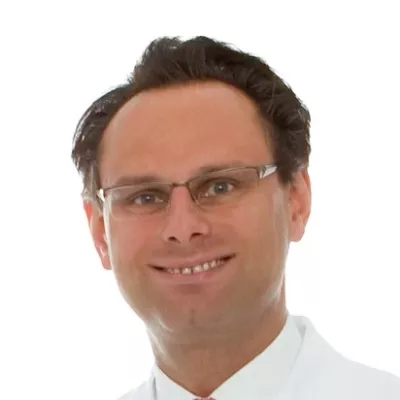
Gastroenterologist, Medical University of Graz, Austria

Gastroenterologist, Medical University of Graz, Austria
Christoph Högenauer is Associated Professor of Medicine at the University Hospital of the Medical University Graz, where he is head of the IBD clinics, the endoscopy unit and of the Theodor Escherich Laboratory of Microbiome Research. Christoph Högenauer is an internationally recognized expert in IBD, intestinal infections and in the field of the gastrointestinal microbiota. He has published 120 SCI listed publication, besides other in the New England Journal of Medicine, PNAS, Gastroenterology, Nature Reviews in Gastroenterology and Hepatology, JCI, Microbiome, American Journal of Gastroenterology, Clinical Infectious Diseases, Alimentary Pharmacology & Therapeutics.
His research fields are on antibiotic associated colitis, inflammatory bowel disease, bacterial virulence factors, gut microbiota and on fecal microbiota transplantation. In his clinical work as a Gastroenterologist he focuses besides treatment of IBD on interventional endoscopy and intensive care medicine.
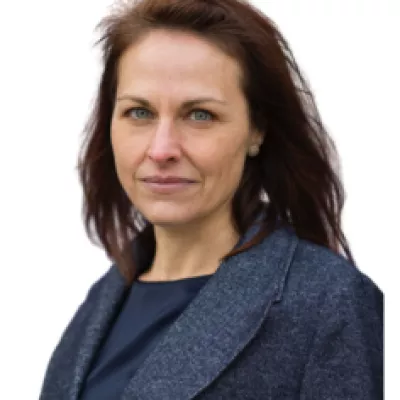
Professor of Microbiology, Ghent University, Ghent, Belgium

Professor of Microbiology, Ghent University, Ghent, Belgium
Professor Marie Joossens is a basic-scientist and group leader at Laboratory of Microbiology in the department of Biochemistry and Microbiology at Ghent University in Belgium.
Marie Joossens is an expert in human microbiome research with more than 100 articles on complex microbial communities published in major journals (including Gut, Gastroenterology, PNAS, Science and Nature Microbiology).
Early in her career, she described a bacterial signature for Crohn's disease using faecal samples and went on to uncover confounding factors for microbiome research by conducting population-based studies. Her current research focuses on microbial ecosystems and their relationship with health and disease, using molecular microbiology in combination with (deep)cultivation. As such, she is doing pioneering work in areas such as the ocular microbiome among others. Building on her experience in gut microbiome research, she studies the repercussions of changes in various human ecosystems on complex microbiota, related to health.
Marie Joossens is a member of the board of directors of the Belgian Society for Microbiology (BSM).
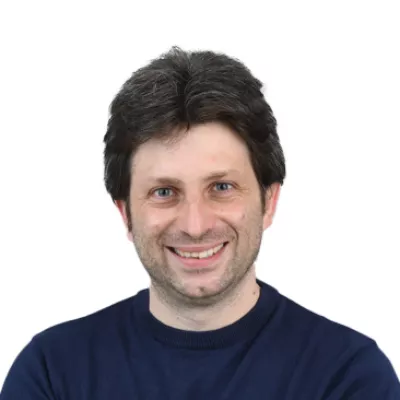
Professor and Director of Computational Metagenomics, University of Trento, Italy

Professor and Director of Computational Metagenomics, University of Trento, Italy
Nicola Segata, Ph.D., is Professor and Principal Investigator in the CIBIO Department at the University of Trento (Italy) and Principal Investigator at the European Institute of Oncology in Milan (Italy).
His lab (http://segatalab.cibio.unitn.it/) comprises more than 25 researchers and employs experimental metagenomic tools and novel computational approaches to study the diversity of the microbiome across conditions and populations and its role in human diseases. The projects in the lab bring together computer scientists, microbiologists, statisticians, and clinicians and are focused on profiling microbiomes with strain-level resolution and on the meta-analysis of very large sets of metagenomes with novel computational tools. The lab of Professor Segata is supported by the European Research Council and by several other European agencies.
Dr. Nicola Segata is an internationally recognized expert in computational biology, metagenomics, and microbiome research.
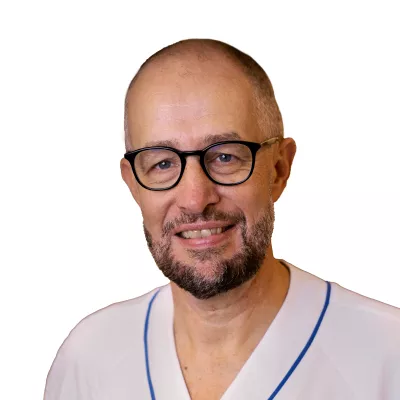
Professor of Gastroenterology, University of Gothenburg, and Senior Consultant, Department of Internal Medicine, Sahlgrenska University Hospital, Gothenburg, Sweden

Professor of Gastroenterology, University of Gothenburg, and Senior Consultant, Department of Internal Medicine, Sahlgrenska University Hospital, Gothenburg, Sweden
Pro-Dean of the Faculty of Medicine, Sahlgrenska Academy at the University of Gothenburg, Sweden
Adjunct Professor of Medicine, University of North Carolina (UNC) School of Medicine, Chapel Hill, NC, USA.
Doctor Simrén’s main research areas are the pathogenesis and pathophysiology of disorders of gut-brain interaction (DGBI), as well as the treatment of these, including a specific focus on the relevance of the gut microbiome in DGBI. He has published more than 390 original articles and written several book chapters on GI motility diseases and DGBI and is currently supervisor for twelve PhD students and five post-docs. Doctor Simrén has served as council member for several international organizations, including UEG and the Rome Foundation. Professor Simrén has also been working as Deputy Editor and Associate Editor of Gut, and as the Clinical Editor of Neurogastroenterology and Motility. Currently, Professor Simrén is Associate Editor of Gastroenterology.

Professor of Gastroenterology, McMaster University - Hamilton, Canada

Professor of Gastroenterology, McMaster University - Hamilton, Canada
Tier 1 Canada Research Chair in Microbial Therapeutics and Nutrition in Gastroenterology Farncombe Family Digestive Health Research Institute
Dr. Elena Verdu graduated as M.D. from the University of Buenos Aires (UBA), where she trained in medicine and gastroenterology and lectured on gastrointestinal physiology at the Department of Human Physiology at UBA. She then obtained a Doctorate in clinical and translational gastrointestinal research from the University of Lausanne, Switzerland, under the supervision of Professor Andre Blum. Her M.D. thesis explored the interaction between chronic infection with Helicobacter pylori and proton pump inhibitors on gastric acid secretion, bacterial overgrowth, and chronic gastritis in humans.
During her Ph.D work in the Department of Gnotobiology and Microbiology at the Czech Academy of Science (working with Professor Helena Tlaskalova), she gained experience in gnotobiotic mouse modelling of inflammatory bowel diseases and microbiology.
As a post-doctoral fellow at McMaster University, she identified the role of specific probiotics in modulating neuromotor and visceral pain pathways. Dr. Verdu became a faculty member at McMaster University in 2006 where research program focuses on the pathophysiology of inflammatory disorders, such as IBD and celiac disease, with emphasis on diet-microbiota interactions.
Dr. Verdu is an elected fellow of the Canadian Academy of Health Sciences and has received several awards including the Master’s in Gastroenterology (Basic Science) by the American Gastroenterology Association, the Excellence in Research Award (Canadian Association of Gastroenterology), the Crohn’s Colitis Canada-Pfeizer Women in IBD: Outstanding Research Achievement Award and the American Gastroenterology Association Institute Council Basic & Clinical Intestinal Disorders (BCID) Section Research Mentor Award.

Professor of Gastroenterology, University of Pennsylvania, Philadelphia, USA

Professor of Gastroenterology, University of Pennsylvania, Philadelphia, USA
Dr. Wu is the Ferdinand G. Weisbrod Professor in Gastroenterology at the Perelman School of Medicine at the University of Pennsylvania where he is the Vice Chief for Research in the Division of Gastroenterology & Hepatology and the Director of both the NIH funded Center for Molecular Studies in Digestive and Liver Disease as well as the Penn Center for Nutritional Science and Medicine.
He was the inaugural Chair of the Scientific Advisory Board for the American Gastroenterological Association’s Center for Gut Microbiome Research and Education and is an elected member of both the American Society for Clinical Investigation and the Association of American Physicians. He was the 2015 recipient of the Crohn's and Colitis Foundation IBD Basic Research Award, the 2020 Sherman Prize, and is currently the Co-Director of the PennCHOP Microbiome Program.
The research programs in the Wu laboratory focus on the mutualistic interactions between the gut microbiota and the host with a particular focus on metabolism. Current areas of investigation include the effect of diet on the gut microbiome and its subsequence effect on host metabolism with a focus on early life events as well as understanding their relationship to dietary treatments for IBD.
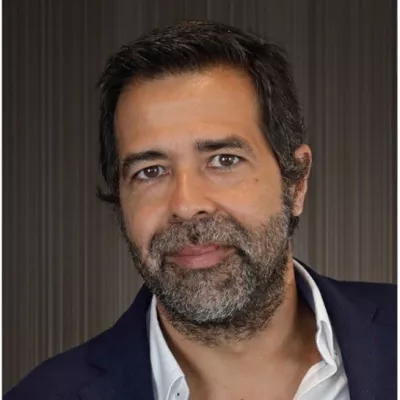
President of the committee, Obstetrician-Gynecologist, Porto, Portugal

President of the committee, Obstetrician-Gynecologist, Porto, Portugal
Pedro Vieira Baptista, is a gynecologist at Hospital Lusíadas Porto, Portugal, specializing in lower genital tract diseases. His clinical focus includes vulvovaginitis, vulvar disorders, sexually transmitted infections, and HPV infection/colposcopy.
With over 100 publications, including peer-reviewed journal articles and book chapters, he has made significant contributions to the field. He was one of the editors of the ISSVD Recommendations for the Diagnosis and Treatment of Vulvovaginitis, published in 2023.
From 2017 to 2024, he served as Secretary General of the International Society for the Study of Vulvovaginal Disease (ISSVD) and is currently the President-elect for the 2028–2028 term. Since 2022, he has also chaired ISSVD’s Vaginitis and Microbiome committee.
He is pursuing a PhD at Porto and Ghent universities, with a research project titled Delineation of a Functional Definition of Bacterial Vaginosis and Vulvovaginal Candidiasis.
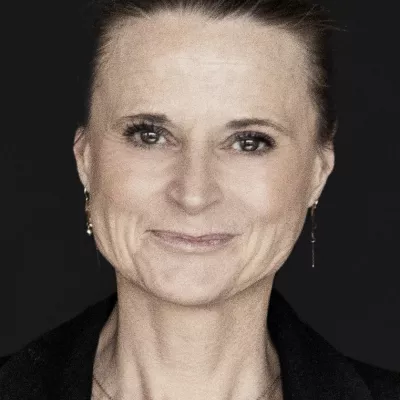
Chair Professor Obstetrics and Gynecology, Department of Medicine, University of Copenhagen, Denmark

Chair Professor Obstetrics and Gynecology, Department of Medicine, University of Copenhagen, Denmark
Henriette Svarre Nielsen
Professor, Chief Physician
Henriette has academically and clinically focused on women´s health for more than 25 years. Clinically she is focused on reproduction, fertility, and pregnancy loss. Academically, after defending her thesis in 2013, she established a research group focusing on reproductive and women’s diseases with a motivation to understanding the underlying pathophysiology and use this knowledge for diagnostics, prognostics, and treatments. The group has grown rapidly to now 30+ people and is truly interdisciplinary, bridging basic, epidemiological, and clinical research with a strong data scientist team. Since 2018 she has had a focus on the microbiome in women´s health and have established large deeply phenotyped cohorts in collaborations with CTMR at KI and pioneered vaginal microbiome transplantation RCTs.
She holds the following positions of trust.
2023- Board member Copenhagen Medical Society www.dmsk.dk
2022-2024 Coordinator ESHRE SIG Implantation and early pregnancy www.eshre.eu Now past coordinator
2021- Executive Board ReproUnion www.reprounion.eu
2019- Steering committee, Nordic Center for Women´s and Reproductive Health
2019- Steering committee, Female Reproductive Studies based on Copenhagen Hospital biobank
2018- Steering group postgraduate PhD Program “life cycle in medicine” www.healthsciences.ku.dk/phd/about-the-graduate-school/graduateprogrammes/life-cycle-medicine/
2014- Co-Founder OvaCure. www.ovacure.org
2005- Founder and Chair Maternity Foundation Aim: Saving lives in childbirth www.maternity.dk
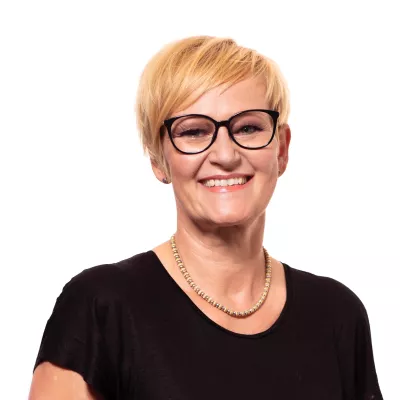
Ina Schuppe Koistinen, PhD, Associate Professor, Alliance Director and leader of the Women’s Health team at the Centre for Translational Microbiome Research (CTMR), Karolinska Institutet, Sweden.

Ina Schuppe Koistinen, PhD, Associate Professor, Alliance Director and leader of the Women’s Health team at the Centre for Translational Microbiome Research (CTMR), Karolinska Institutet, Sweden.
Ina Shuppe Koistinen, PhD is a dynamic scientific leader with a strong commitment to advancing research and innovation in women’s health and the microbiome. After nearly two decades in the pharmaceutical industry—where she led translational research in areas such as CNS, respiratory, autoimmune, cardiovascular, and metabolic diseases—she returned to academia and now holds a senior research position at Karolinska Institutet in Stockholm.
Ina’s current work focuses on understanding the complex interplay between the vaginal and skin microbiomes and host responses, particularly in the context of hormonal changes, reproductive health, and pregnancy-related complications. Her research aims to identify microbial and inflammatory biomarkers that can inform risk prediction, early intervention, and preventive strategies for dysbiosis and complications such as preterm birth and other adverse pregnancy outcomes.
In addition to her academic work, Ina is a co-founder of Cutis Skin Health Sweden, a biotech startup developing microbiome-based solutions to promote skin health. Her interdisciplinary background in pharmacology, toxicology, and systems biology positions her uniquely to translate microbiome science into meaningful health innovations.
PUBLICATION RECORD
106 PEER-REVIEWED PUBLICATIONS (Web of Science January 2025: citations 4347, h-index 37)
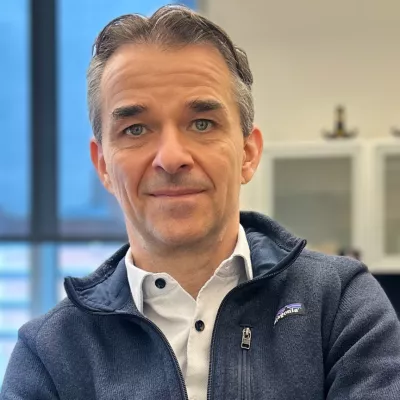
Director, Center for Advanced Microbiome Research and Innovation, Institute for Genome Sciences
Professor, Microbiology & Immunology, and Medicine
University of Maryland School of Medicine, Baltimore, USA

Director, Center for Advanced Microbiome Research and Innovation, Institute for Genome Sciences
Professor, Microbiology & Immunology, and Medicine
University of Maryland School of Medicine, Baltimore, USA
Dr. Jacques Ravel is a Professor in the Department of Microbiology and Immunology and Director of the Center for Advanced Microbiome Research and Innovation (CAMRI) at the Institute for Genome Sciences, University of Maryland School of Medicine. He received his Ph.D. in Environmental Molecular Microbiology and Ecology from the University of Maryland College Park. He completed postdoctoral training as a Ruth L. Kirschstein National Research Fellow at Johns Hopkins University. From 2002 to 2007, he was an Assistant Investigator at The Institute for Genomic Research (TIGR), before joining the University of Maryland in 2007.
For over 20 years, Dr. Ravel has pioneered research applying genomics and ecological principles to understand the role and dynamics of the vaginal microbiome in women's health. He uses clinical genomics and systems biology approaches to develop improved strategies to manage gynecological and obstetrics conditions. His work is driving the development of innovative live microbiome-based biotherapeutics.
Dr. Ravel has published over 350 peer-reviewed articles and is a Fellow of the American Academy of Microbiology. He was awarded the Blaise Pascal International Research Chair in 2015. He founded and serves as Editor-in-Chief of Microbiome.
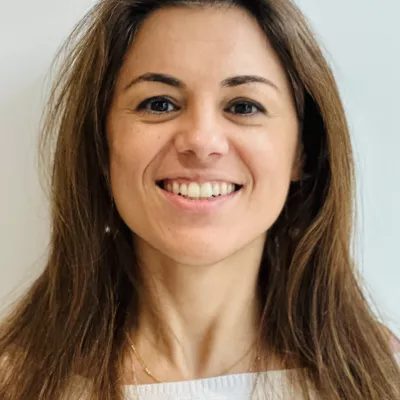
MSc PhD MRCOG, Chair in Gynaecological Oncology, Professor & Consultant Gynaecological Oncology Surgeon, IRDB, Department of Gut, Metabolism & Reproduction - Surgery & Cancer, Imperial College London, West London Gynaecological Cancer Centre, Imperial Healthcare NHS Trust, London, UK

MSc PhD MRCOG, Chair in Gynaecological Oncology, Professor & Consultant Gynaecological Oncology Surgeon, IRDB, Department of Gut, Metabolism & Reproduction - Surgery & Cancer, Imperial College London, West London Gynaecological Cancer Centre, Imperial Healthcare NHS Trust, London, UK
Professor Maria Kyrgiou holds a Chair in Gynaecological Oncology at Imperial College London and works as a Consultant Gynaecological Oncology Surgeon. The primary focus of her research is translational research in gynaecological cancers, in particular cervical, endometrial and ovarian cancer with an emphasis on prevention, early detection and personalised treatment. Professor Kyrgiou contributes to a number of national and international committees, such as the ESGO Prevention Committee and chairs the BSCCP Research Committee.
She runs a programme of research investigating genetic, epigenetic, microbiome and host interaction in the aetiology of gynaecological cancers. She has an interest in cervical screening and is the Chief Investigator of the NOVEL trial on the HPV vaccination in women with cervical disease. She runs a research group investigating the impact of obesity and metabolic disorders in the development of gynaecological cancers.
Professor Kyrgiou contributes to a number of national and international committees, such as the ESGO Prevention Committee and chairs the BSCCP Research Committee.
200 publications
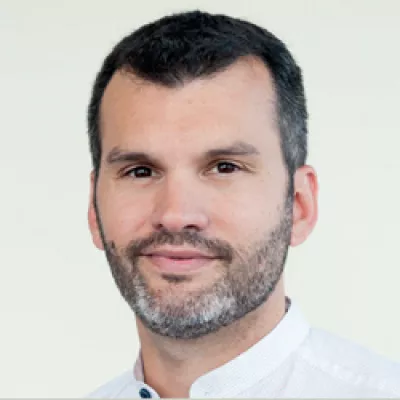
University Professor, Hospital Practitioner, Head of in Obstetrics and Gynecology Department, Angers University Hospital, France

University Professor, Hospital Practitioner, Head of in Obstetrics and Gynecology Department, Angers University Hospital, France
Pierre-Emmanuel Bouet (MD, PhD) is a specialist in Obstetrics and Gynaecology.
From 2013 to 2015, he completed his training in Reproductive Endocrinology and Infertility fellowship at Montreal University Hospital and Ovo clinic.
Since 2015, he is head of Reproductive Medicine Unit at Angers University Hospital (France). He is also a member of the INSERM U1083 research team. He has authored and co-authored numerous publications.
Grants and awards
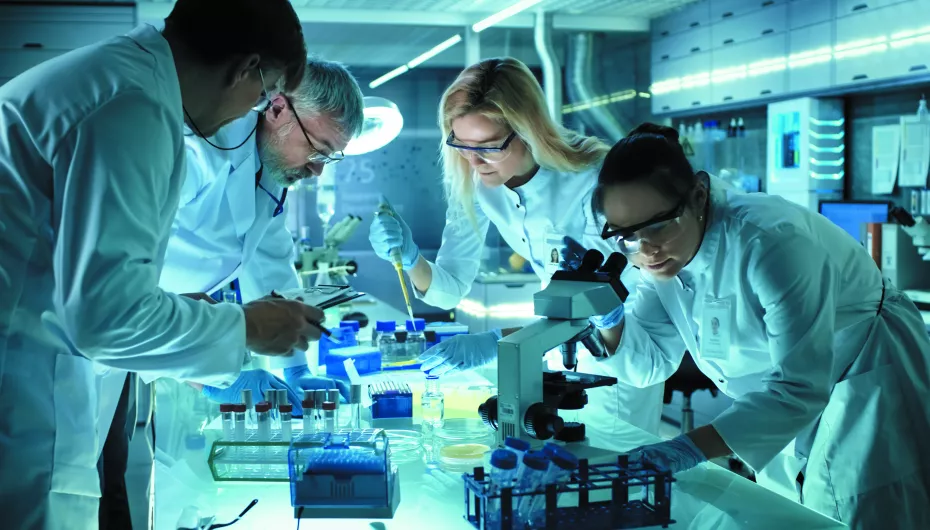
Our scientific committee will select the best project among all the submitted ones.
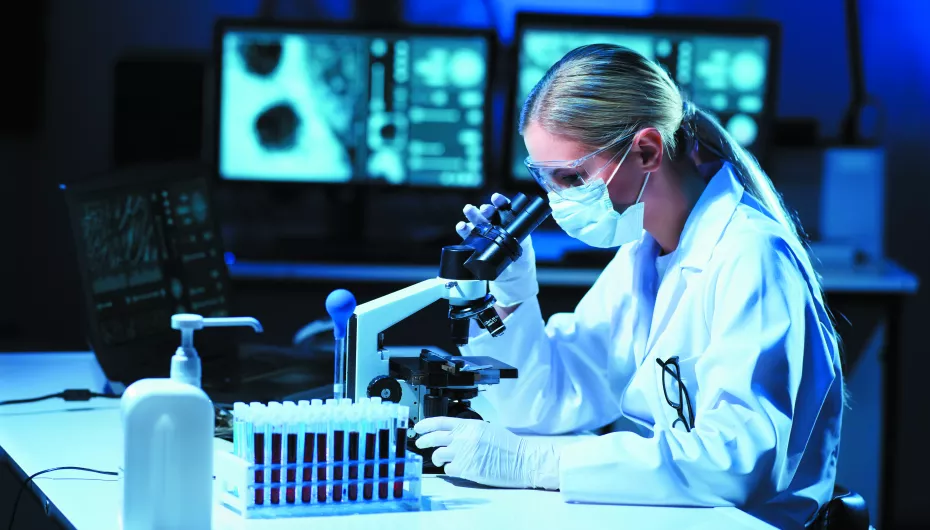
Since 2017, The Biocodex Microbiota Foundation rewards national research initiatives which aim to understand the interaction between microbiota and different pathologies. By promoting scientists from around the world at a key moment in their career, the grant seeks to motivate researchers.

Initiatives dedicated to improving the management of disorders associated with microbiota.
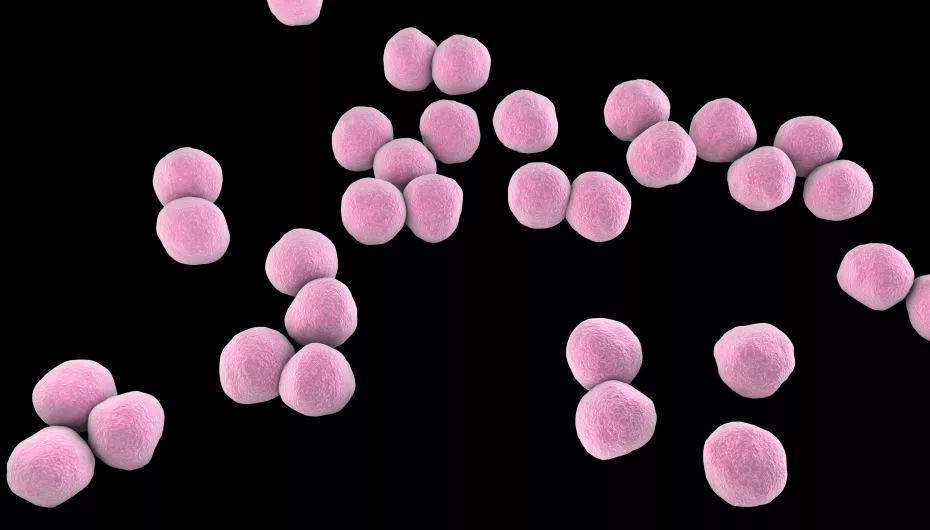
Your research could make a difference. Join us in advancing science and transforming women’s health!

